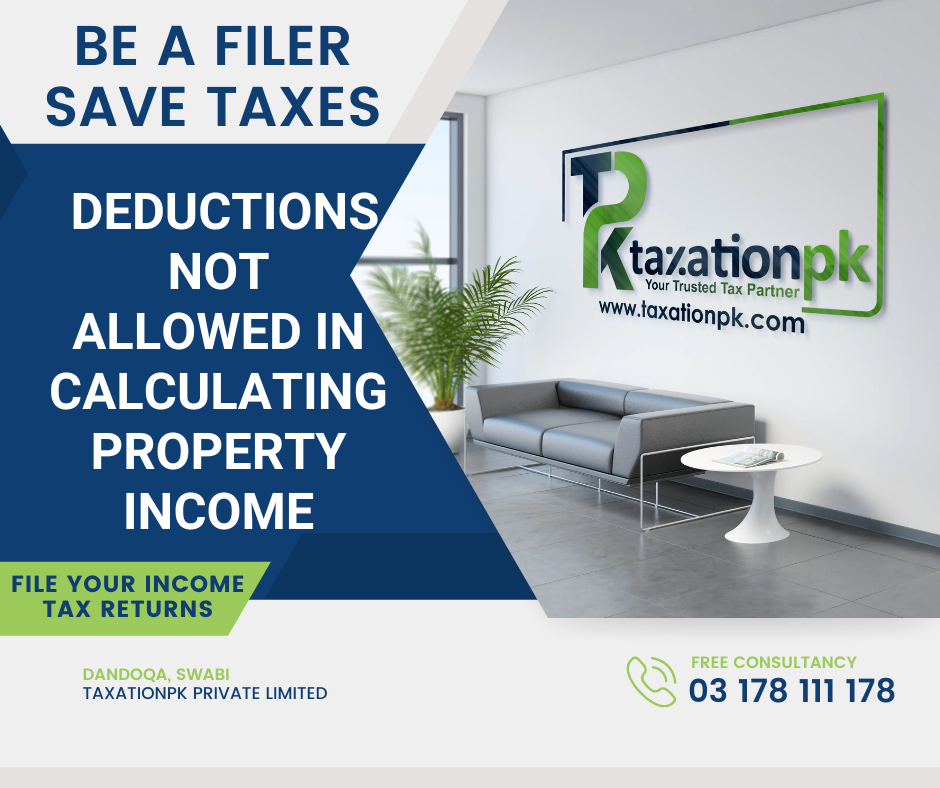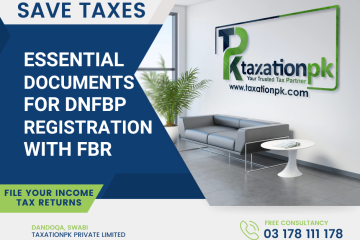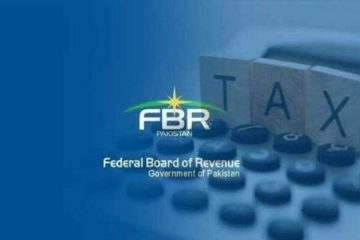For property owners in Pakistan, understanding tax implications is crucial. While rental income can be a valuable source of income, it’s essential to be aware of deductions that are not allowed when calculating your taxable property income. This knowledge helps ensure accurate tax filing and avoids potential penalties.
The Ordinance and Its Significance:
The Income Tax Ordinance, 2001, serves as the primary legal framework governing income tax in Pakistan. This article, specifically focuses on deductions not allowed in computing income under the head “Income from Business.” While it primarily applies to businesses, it also holds relevance for property income/rental income often falls under this category.
Key Deductions Disallowed for Property Income:
The Ordinance outlines various expenses that cannot be deducted from your rental income when calculating your taxable income. Here’s a breakdown of the most significant ones:
-
Capital Expenditures: Expenses related to acquiring or enhancing the property itself are not deductible. This includes the purchase price of the property, construction costs, major renovations, and improvements that extend the property’s useful life.
-
Personal Expenditures: Any personal expenses incurred by the property owner are not allowed as deductions. This includes utility bills (if you reside in a portion of the property) or repairs you make for your own comfort.
-
Fines and Penalties: Fines or penalties imposed for violating any law, rule, or regulation related to the property cannot be deducted.
-
Entertainment Expenses: Entertainment expenses associated with the property are not deductible. This includes expenses incurred while entertaining potential tenants or brokers.
-
Contributions to Non-Approved Funds: Contributions made to non-approved provident funds or any fund not established for the benefit of employees are not deductible.
-
Excess Salary Payments (if applicable): If you manage the property yourself and pay yourself a salary exceeding a certain limit (currently Rs. 32,000 per month), the excess amount is not deductible unless paid through a crossed cheque or direct transfer to your bank account.
-
Transactions Not Through Banking Channels (for companies): For companies, any expenditure exceeding a specific amount (currently Rs. 250,000) made through non-banking channels like cash payments is not deductible. This aims to promote transparency and discourage cash transactions.
-
Expenditure Not Verifiable: Expenses not supported by proper documentation or verifiable through bank statements might be disallowed.
Important Points to Remember:
-
Exceptions Exist: The Ordinance does allow certain deductions for property income. These include repairs and maintenance costs (up to a specific limit), local taxes and charges related to the property, insurance premiums, and legal expenses related to managing the property.
-
Limits and Conditions Apply: For some allowable deductions, there may be specific limits or conditions. It’s crucial to stay updated on the latest tax regulations to ensure you claim deductions correctly.
-
Consult a Tax Advisor: Navigating tax laws can be complex. Seeking guidance from a qualified tax advisor can help you understand allowable deductions and optimize your tax filing process.
Conclusion:
By understanding the deductions not allowed for calculating property income, you can ensure accurate tax filing and avoid potential penalties. Remember, the Income Tax Ordinance is subject to change. Staying informed through official sources like the FBR website and consulting a tax advisor are valuable steps to ensure tax compliance. By managing your property income efficiently and following tax regulations, you can maximize your returns and contribute to a robust tax system in Pakistan.







